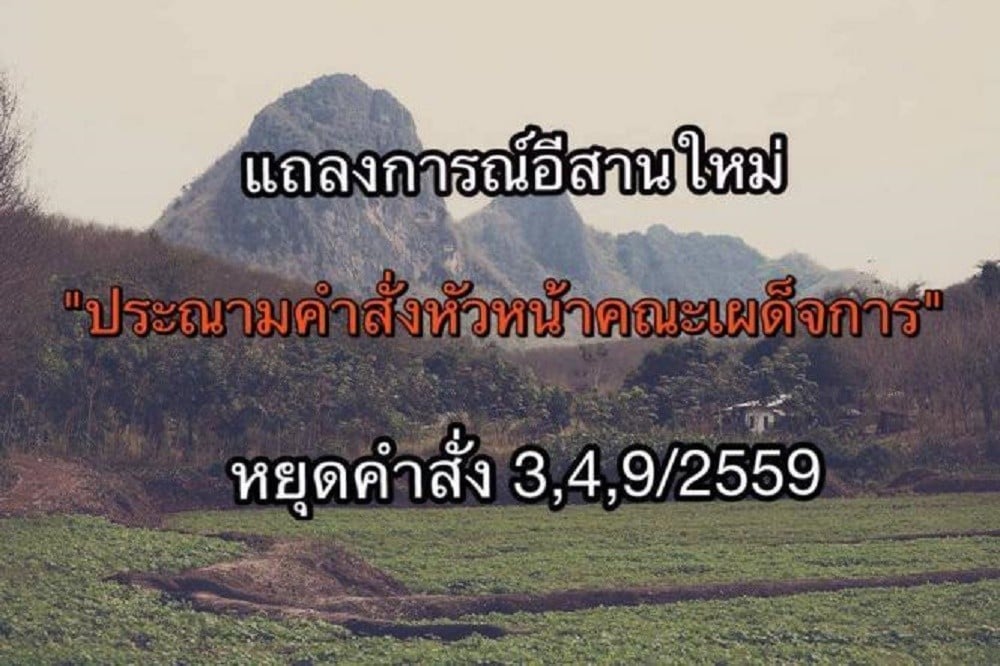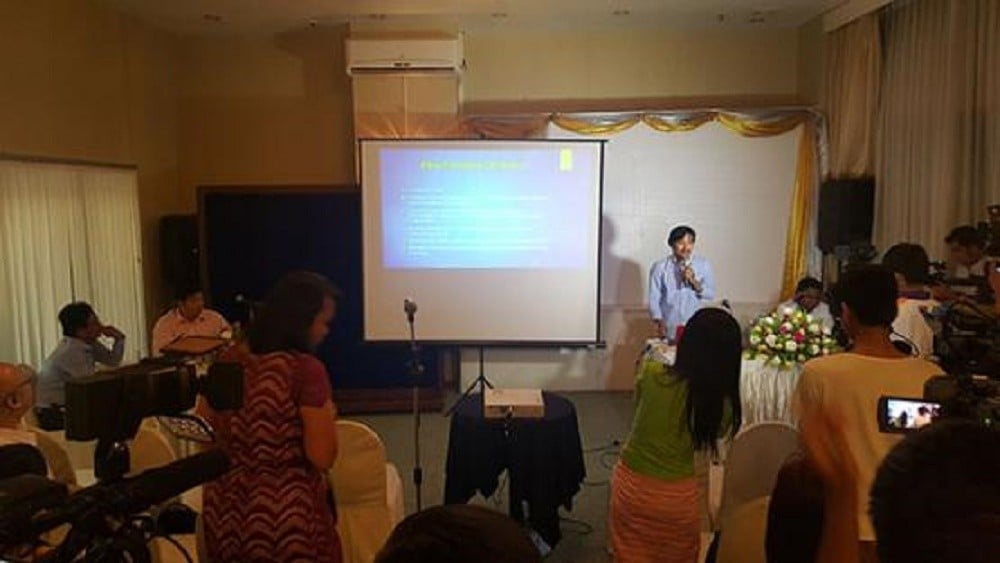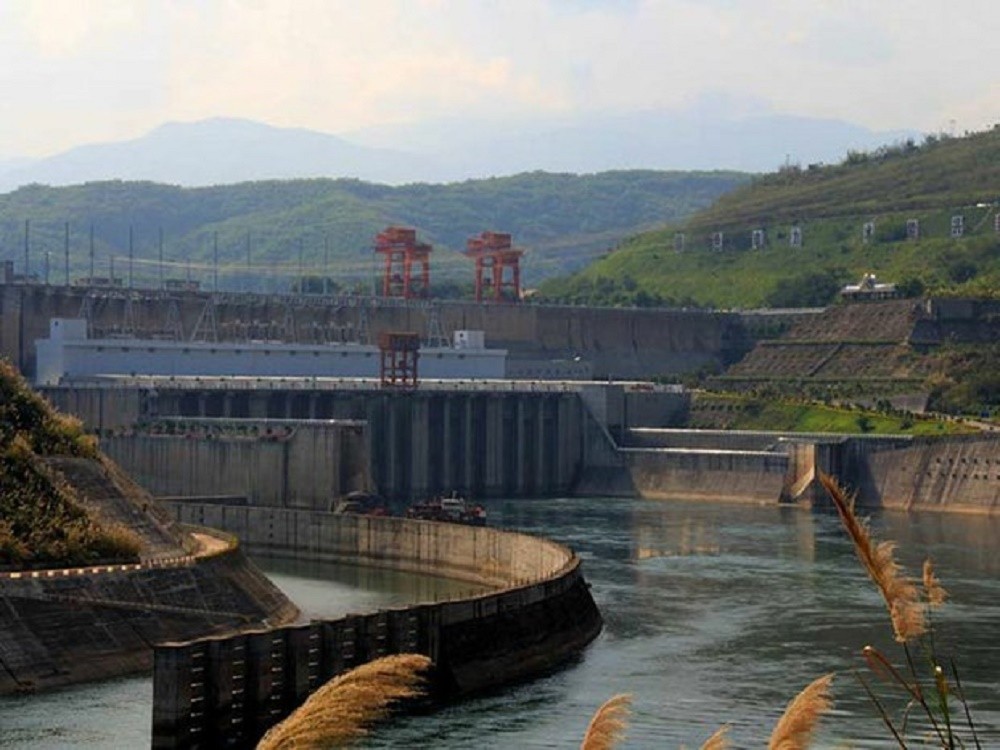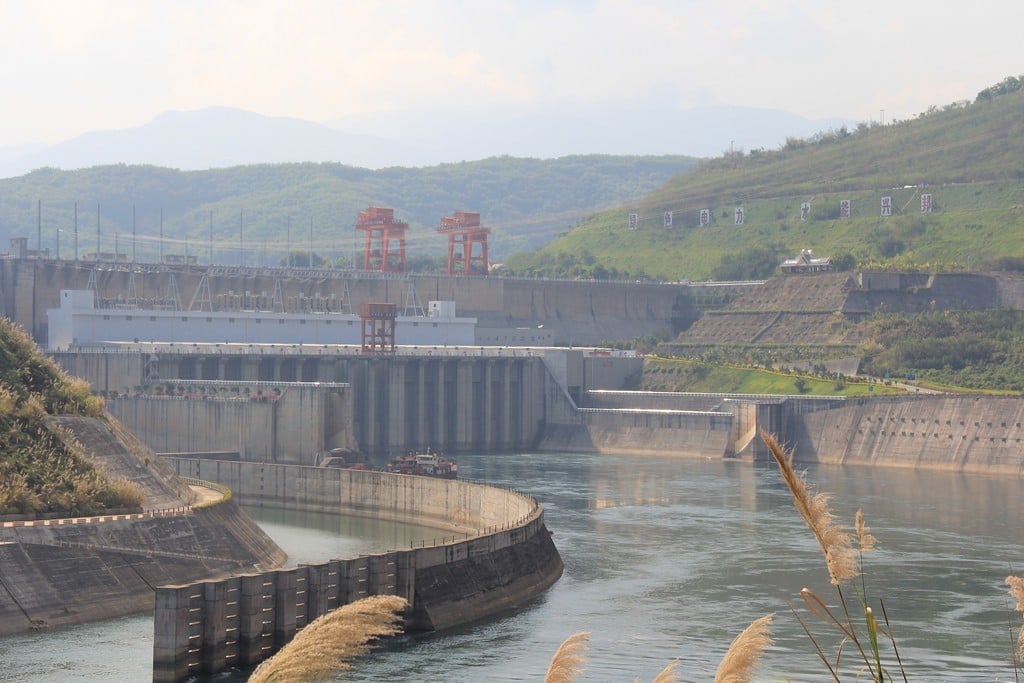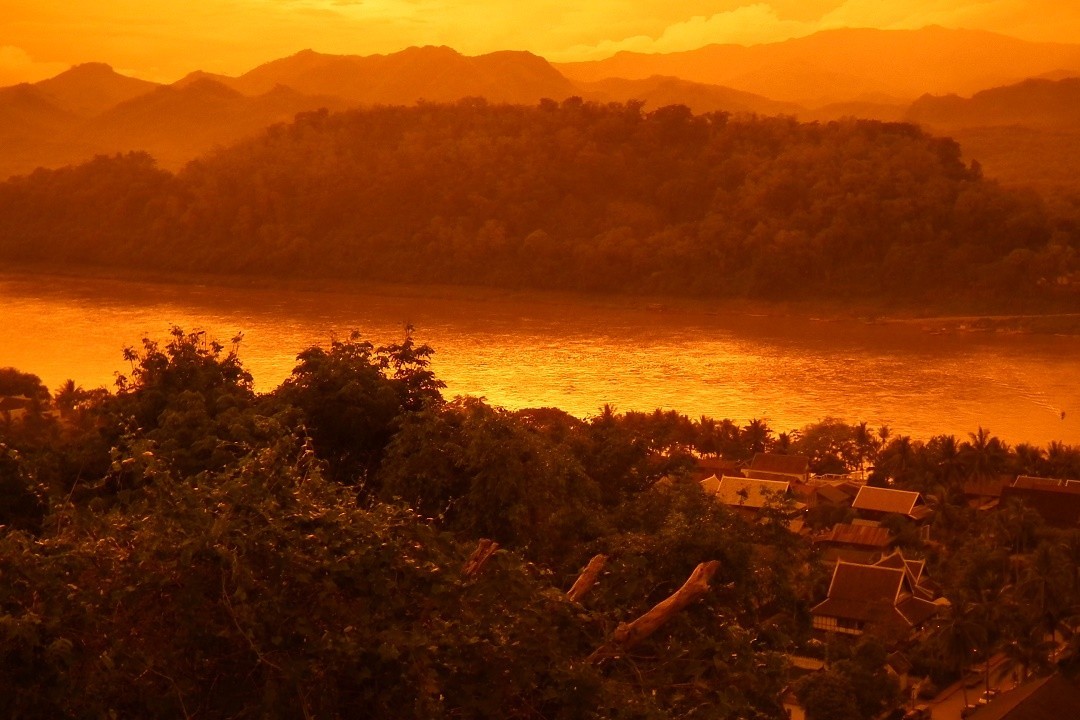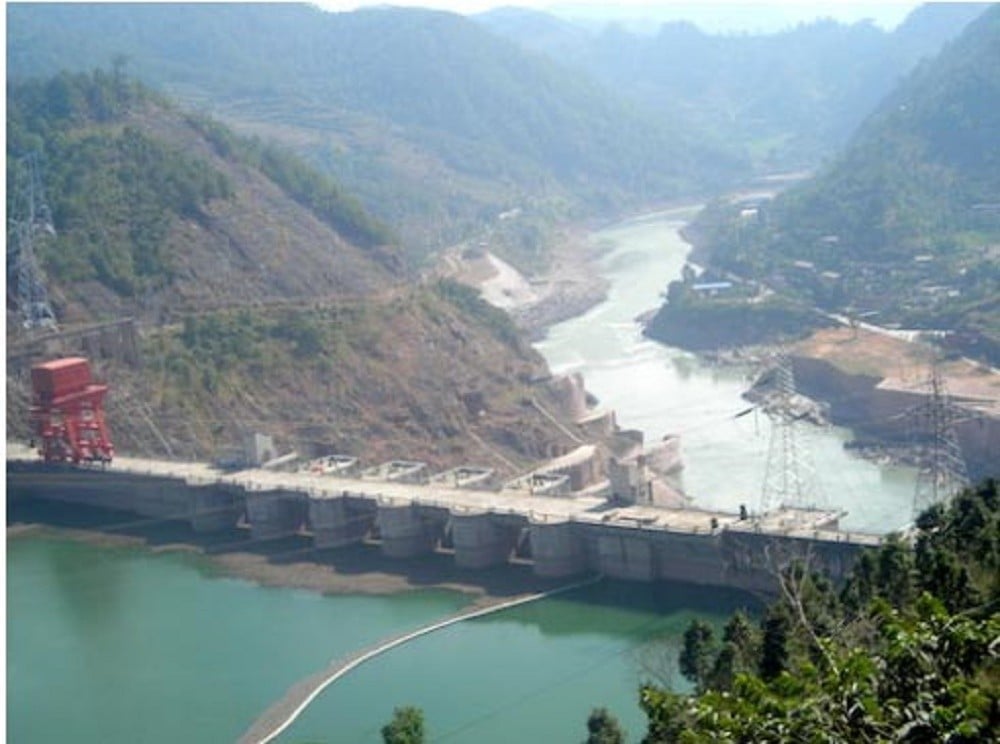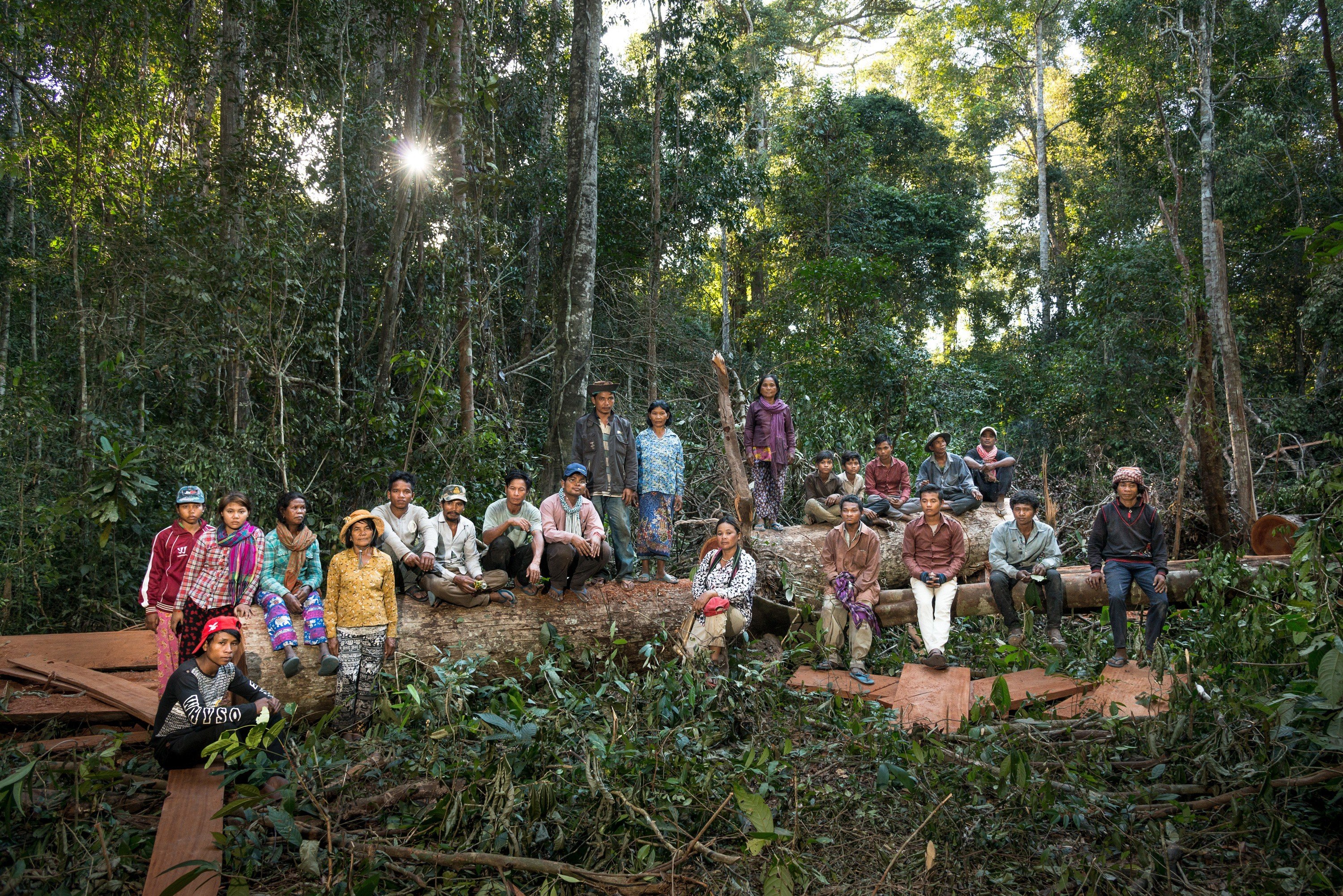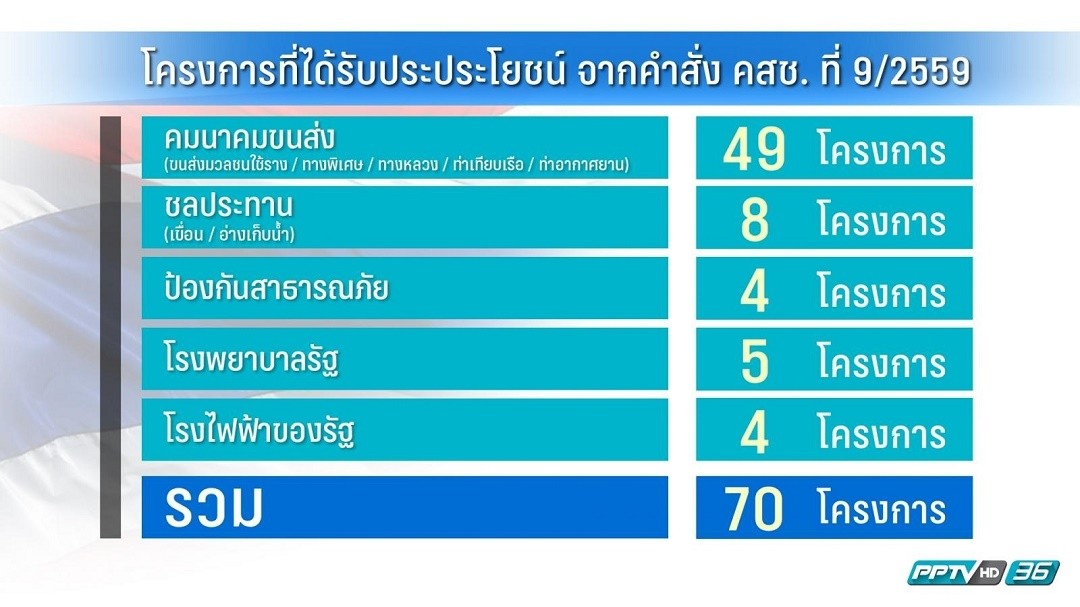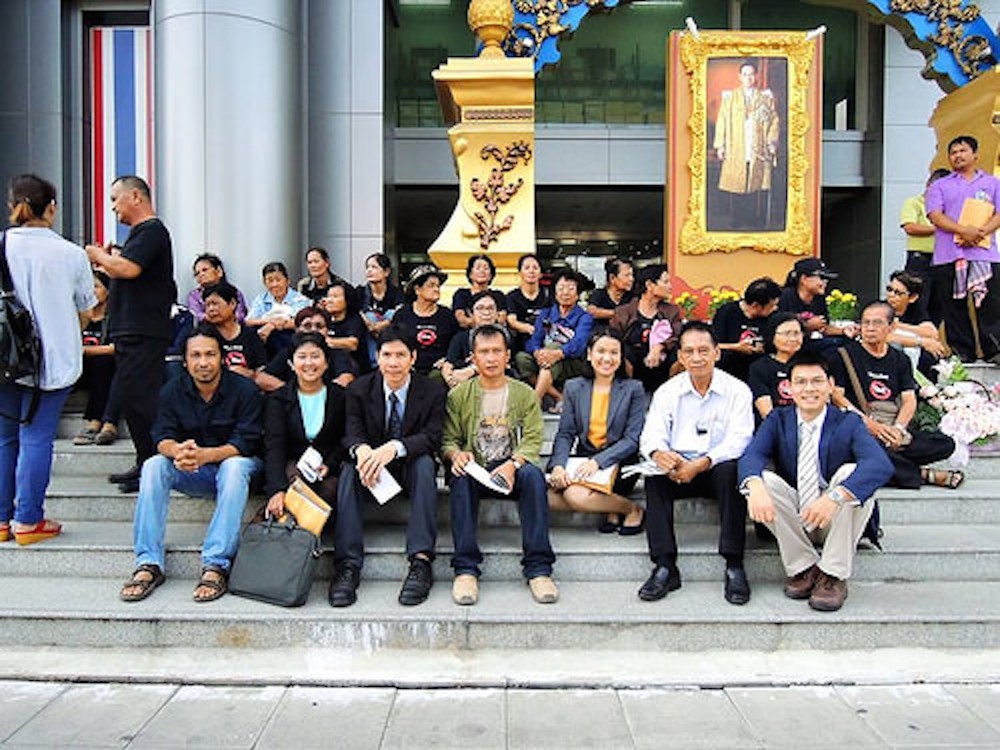NEO-Essan Movement released statement which results in the deprivation of citizens’ rights in a number of areas in the Northeast as well as other areas around the country. From the statement, it was claimed that the NCPO’s orders destroyed the public participation rights instead of protecting it, undisclosed the information to public instead of promoting public freedom of expression which is a fundamental rights of every citizen.
Category: Article
Decentralization and Proper Resources Allocation from the extractive industries could promote peace in Myanmar
ၿဖိဳးေ၀ Rakhine Oil Watch, has launched a report on March 22 at Summit Parkview Hotel in Myanmar. The research and recommendation says, “Only the decentralization and proper resource allocation from the extractive industries could promote peace in Myanmar” especially in ethnic areas. The decentralization is the constitutional rights of the local government, but it has […]
NGOs question China’s dam release
One week ago, China doubled the quantity of water released from the Jinghong Dam along the Mekong River in Yunnan province. This came two days following Vietnamese officials meeting in Beijing to request the increase due to severe drought conditions and low flows in the Mekong Delta. But at a press conference in Bangkok yesterday, representatives of Thai civil society and communities denounced the action as destructive and insincere.
“No one doubts that people in the Vietnamese Delta may be suffering from salt water intrusion due to low Mekong flows this dry season,” said Montree Chantawong from Towards Ecological Recovery and Regional Alliance (TERRA), “But these additional dam releases can’t really help them, yet are hurting many of us.”
China leaves little doubt who is master of the Mekong
Supalak Ganjanakundee China is demonstrating that it has real power to control and manage the Mekong River, as Beijing launches a diplomatic campaign to engage with affected countries downstream. This situation has become clear after China’s contacts with the other five countries along the river – Myanmar, Laos, Thailand, Cambodia and Vietnam. Physically, about half […]
China’s alarming ‘water diplomacy’ on the Mekong
At first glance, it looks beneficent. As countries along the Lower Mekong river that snakes through mainland Southeast Asia struggled in the grip of a severe drought, China announced it would release water from its upstream Jinghong dam over nearly a month from March 15. The announcement was partly intended as a goodwill gesture one week ahead of the inaugural Lancang-Mekong Cooperation summit of leaders of the six Mekong region countries.
But while the water release will spell some immediate relief for the drought-stricken region, it portends future geopolitical tensions between China and its southern Mekong neighbors. Having unilaterally accumulated political power by exploiting geography and manipulating natural waterways through the construction of a slew of upriver dams, China appears intent to set the regional water management rules as it deems fit.
The Mekong, which the Chinese refer to as Lancang, is Asia’s seventh-longest river and provides livelihoods and habitats for riverfront communities and natural wildlife throughout its meandering flow from China and Myanmar to Laos and Thailand, down to Cambodia and Vietnam before it reaches the sea. China’s damming of the upper Mekong has long been considered a geopolitical risk for the lower riparian states and a source of potential conflict for the entire Greater Mekong Subregion — encompassing Cambodia, China, Laos, Myanmar, Thailand and Vietnam. That risk has manifested itself in an inchoate fashion through the annual dry seasons, when about 60 million people in fishing villages and communities along the Mekong are severely affected. But any protest has been silenced by geopolitical realities.
History’s Mirror on the Mekong: Are We Caught in the Hydrologic Trap?
As the world recognizes World Water Day, The Mekong Eye examines recent worrying news events that could threaten the Mekong River Basin.
A request to China to regulate the water flow from upstream Mekong river
Mekong Delta Region (MDR) is the largest rice field of Vietnam now facing the serious drought and water shortage. There are 7 provinces in Mekong Delta region is damaged by salinization. The cause of this situation is the depletion of water supplies by the Mekong River. In order to dealing with this situation, in Hanoi 3 March, 2016, Vietnam Deputy Prime Minister has a working session with the Ministry of Natural Resources and Environment (MONRE), the Mekong River Commission of Vietnam on research impact of hydropower projects on the Mekong mainstream.
Vanishing Roots
In Cambodia’s Northern Prey Lang forest, one of the last remaining evergreen forests in Southeast Asia, a community is organizing itself to preserve its roots, traditions, and protect the land to which it belongs.
Thai Ministry of Natural Resources confirm order will not put pressure on EIA approval process
Environmental scholars and a network of Civil Society Organizations protested against NCPO’s order no. 9/2559 which permits the state enterprises to select private companies to initiate their projects before an environmental impact assessment (EIA) gets approval. On March 10, the Ministry of Natural Resources and Environment as the primary agency responsible for the preparation for EIA reports, clarified regarding the concerns raised by academics and the CSO network that called for review and cancellation of the order.
Order flawed but regime doesn’t care
In plain words, the NCPO’s order No.9/2559 can only quicken projects when it assumes the EIA and EHIA will be approved as a rubber stamp. All other attempts to justify it are illogical.
But then again, there is a similar failed logic here as in past suggestions that people grow velvet beans instead of rice, shower less in the face of drought or refrain from making sparks to avoid wildfires.
As the military regime lingers on, the daily dose of illogicality is increasing and becomes more flagrant. If a fast-track solution is ever needed, it’s to expedite the exit of one immodest man’s rule to the more sensible one-man, one-vote.


